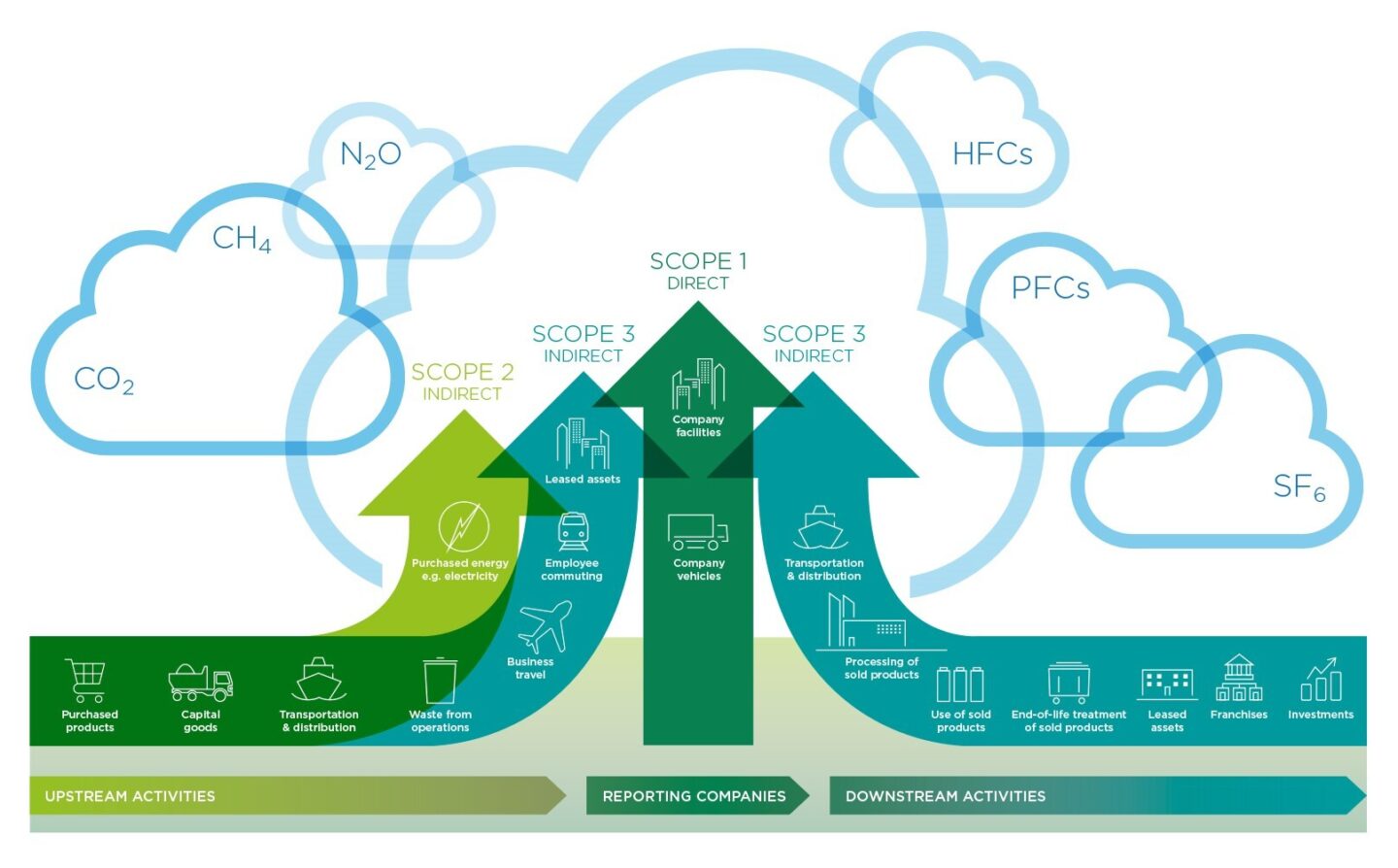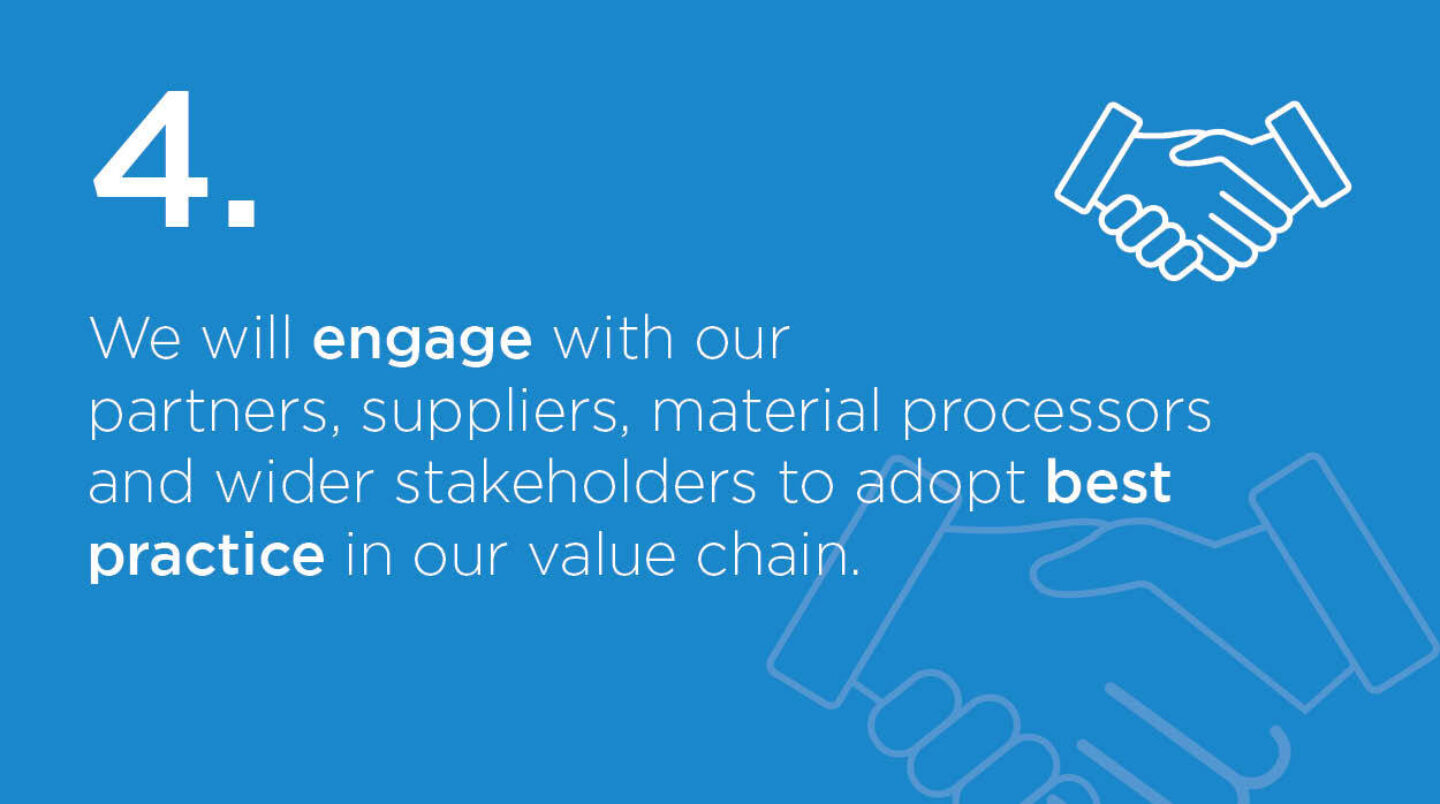Thursday 27th May 2021
It’s natural for an organisation to focus on the carbon emissions they directly create when making net zero commitments. However for most organisations, the carbon emissions within their value chain and suppliers are normally significantly higher. In some cases by a factor of 5 of the emissions they directly control.As they make up such a large share of an organisation’s carbon footprint, it’s important that they are not overlooked. Emissions are split into three main groups, commonly referred to as ‘scopes’.

Scope 1 emissions refers to all direct emissions from a business, whilst scope 2 refers to indirect emissions from energy use, such as electricity purchased.Scope 3 emissions are other indirect emissions, such as:
- Procured services, such as waste management
- Business travel
- Employee commuting
- Distribution and storage of a company’s manufactured products
As they are not in a company’s direct control, these emissions are often hard to manage and can pose significant risks to an organisation achieving its net zero commitments. Using a trusted supply chain partner is key to delivering real carbon reductions, particularly given that the majority of emissions are in scope 3.
So, what are we doing about it?

Commitment no. 4
We take our responsibilities to reduce the carbon emissions from handling your waste and recycling very seriously. As part of our carbon reduction commitments:
We will launch innovative lower carbon partnerships
- For example, in the absence of an effective collection and sorting service, compostable packaging often ends up being incinerated, which leads to carbon emissions into the atmosphere. Last year we launched a brand-new Vegware Compostables service and teamed up with enVar, an In-vessel composting facility. This provides the lowest carbon end-of-life outcome for this growing packaging type.
We will engage with all our re-processors, to learn more about their own emissions reduction initiatives, to inform our decisions about who we want to work with
As well as identifying the best destinations for your materials, we will actively seek new and innovative solutions to turn your materials into high-quality circular economy products
- For example, our brand-new SustainABLE Box is for hard-to-recycle items, such as crisp packets, and turns them into Stormboard, which is an alternative to single-use hoarding boards used in construction.
We will continue to engage with wider stakeholders, such as the Environmental Services Association (ESA) and adopt external best practice into our processes
We will look for opportunities to lead on carbon reduction initiatives in the built environment
- We are one of the first 20 firms in London to be a part of the Mayor of London’s Business Climate Challenge, a pilot scheme to help businesses reduce carbon emissions in buildings.
With indirect carbon emissions being so large, and the increased risk from a lack of direct control, we are committed to delivering real carbon emission reductions to our clients, through our own business activities and engaging with our suppliers and partners.
